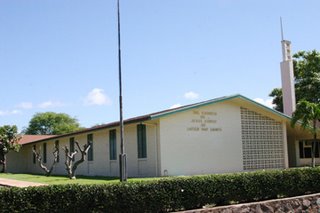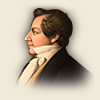A Rarely Discussed Mormon Doctrine
"Participants in a panel discussion representing various perspectives shared their thoughts on a host of doctrines that mainstream Christian faiths and The Church of Jesus Christ of Latter-day Saints have widely divergent opinions on."
The short news report does not identify the number of participants on the panel, but it does name and quote one Mormon professor from Brigham Young University, Robert Millet.
Dr. Millet spoke about the LDS doctrine of Eternal Progression. Though the article defined Eternal Progression as "the notion that mortals can become like God in the afterlife," a better and fuller definition of the doctrine is found in a famous (among Latter-day Saints) couplet written by Lorenzo Snow, who became the 5th LDS Prophet in 1898:
"As man is, God once was;
As God is, man may become."
(Encyclopedia of Mormonism 4:1474)
Mr. Snow claimed this doctrinal teaching came to him via revelation in 1840. Later, Joseph Smith told him it was a "true gospel doctrine' revealed "from God to you." (LeRoi C. Snow, "Devotion to a Divine Inspiration," Improvement Era, June 1919, page 656)
According to Deseret News, Dr. Millet said doctrines like Eternal Progression are not as frequently discussed now as they were 30 years ago "because we've begun to talk about other things more." In the 1970s,
"…[LDS] church members 'began to become much more literate in the scriptures,' which led to a greater emphasis on redemptive theology through Jesus Christ. The result 'has caused us to focus more on some things and less on other things,' Millet said."
Dr. Millet's comments make it seem as if the doctrine of Eternal Progression is not really an important part of Mormon theology. He doesn't deny or repudiate the teaching, but he shifts attention away from it and points his audience instead to an LDS belief in Christ. However, sitting on my desk I have four issues of Ensign magazine that teach the concept of Eternal Progression as a true and current doctrine of the LDS Church:
- August 1995: "…our Heavenly Father proposed that all of his spirit children who lived with him in heaven might obtain the same blessings and privileges of Deity he enjoys. The process includes our gradually obtaining a clear understanding of the eternal principles that prepared and placed him in his current exalted condition." ("Learning to Live for Eternal Life," Seventy Carlos H. Amado, page 38)
- July 1996: "Knowing what we know concerning God our Father--that he is a personal being; that he has a body of flesh and bones as tangible as our own; that he is an exalted and glorified being; that he was once a man and dwelt on an earth…" ("The Eternal Gospel," Robert L. Millet, page 53)
- February 2002: "God Himself is an exalted man, perfected, enthroned, and supreme. …even as the infant son of an earthly father and mother is capable in due time of becoming a man, so the undeveloped offspring of celestial parentage is capable, by experience through ages and aeons, of evolving into a God." ("The Origin of Man," First Presidency of The Church of Jesus Christ of Latter-day Saints, reprint of November 1909 statement, page 30)
- January 2006: "…if we are faithful and true to the commandments of the Lord, to become sons and daughters of God, joint heirs with Jesus Christ; and in His presence to go on to a fulness and a continuation of the seeds forever, and perhaps through our faithfulness to have the opportunity of building worlds and peopling them." ("Adam's Role in Bringing Us Mortality," President Joseph Fielding Smith, reprint of October 1967 General Conference address, page 52)
Furthermore, though my copies of Ensign don't go back this far, consider one more incidence of the teaching Eternal Progression since the 1970s:
- July 1982: "It is clear that the teaching of President Lorenzo Snow is both acceptable and accepted doctrine in the Church today." ("I have a question," Gerald Lund, page 38)
In the end it doesn't really matter how often Eternal Progression is discussed in the LDS Church. What matters is that it is a central point of doctrine. This doctrine defines the God that Mormonism calls people to worship; this doctrine constitutes the eternal hope of Latter-day Saints to one day become Gods.
I would say without a doubt that Deseret News got it right. The conference panel absolutely discussed doctrines "that mainstream Christian faiths and The Church of Jesus Christ of Latter-day Saints have widely divergent opinions on." To Mormons, Eternal Progression is truth; to Christians, incontrovertible heresy.
Labels: Eternal Progression, Exaltation, God the Father, Lorenzo Snow, Salvation




